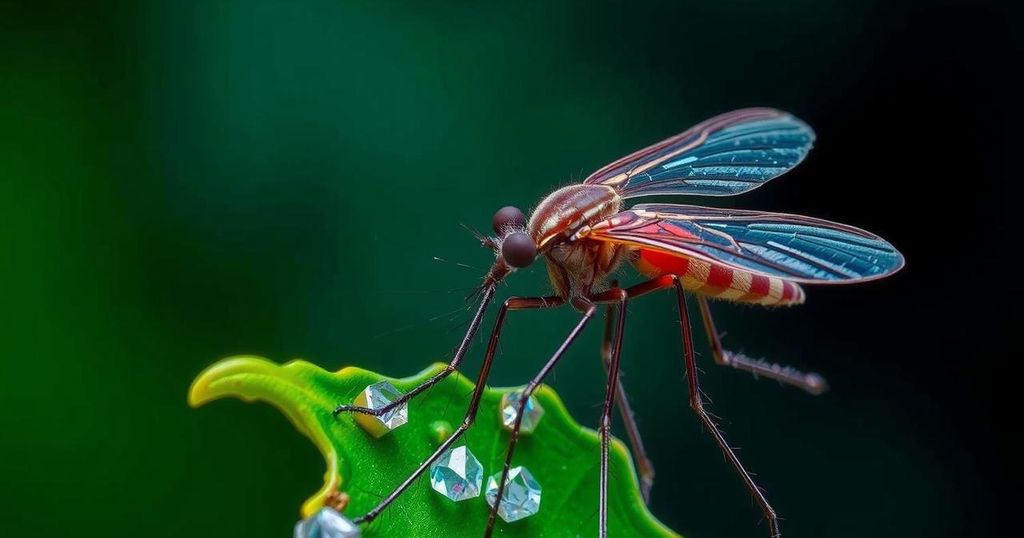A recent study indicates that climate change is responsible for approximately 20% of the surge in dengue cases worldwide, with rising temperatures enabling mosquito expansion into new areas. As dengue conditions improve due to climate change, health risks increase, prompting research into innovative solutions such as Wolbachia-infected mosquitoes. This study highlights the pressing link between climate change and public health.
Recent research indicates that nearly 20% of the unprecedented rise in dengue fever cases globally can be attributed to climate change, as reported by researchers from the United States. Though extensive studies emphasize the direct effects of climate change on extreme weather patterns, understanding its implications for public health, particularly concerning disease outbreaks, remains an emerging field. Erin Mordecai, an infectious disease ecologist at Stanford University, noted that “Dengue is a really good first disease to focus on because it’s very climate sensitive.” The study highlights that rising temperatures enable mosquitoes, the vectors for dengue, to thrive in previously unsuitable regions, exacerbating the disease’s spread. The research analyzed dengue infections across 21 countries in Asia and the Americas, revealing that approximately 19% of current cases can be linked to climate warming. Ideal temperatures for dengue transmission lie within 20-29 degrees Celsius. The study predicts that elevated areas in countries such as Peru, Mexico, Bolivia, and Brazil are likely to experience a 200% increase in dengue infections over the next 25 years as these regions reach favorable temperatures for mosquito proliferation. An estimated 257 million individuals currently reside in regions where rising temperatures could significantly elevate dengue rates. Moreover, the World Health Organization reported that over 12.7 million dengue cases were documented globally this year, doubling previous records. Erin Mordecai cautioned that actual cases may reach approximately 100 million due to significant underreporting. In response to this crisis, researchers are exploring innovative solutions, such as breeding mosquitoes infected with Wolbachia bacteria, which have demonstrated the ability to inhibit dengue transmission. Successful trials in the Brazilian city of Niteroi revealed a substantial reduction in dengue cases, suggesting that Wolbachia could provide an effective, long-term defense against the disease for affected communities. A partnership with the Brazilian government aims to establish a production facility for Wolbachia mosquitoes to safeguard populations against increasing dengue incidents.
Dengue is a viral disease transmitted by infected mosquitoes, primarily affecting tropical and subtropical regions. As global temperatures continue to rise due to climate change, the geographic distribution of dengue is expanding, putting new populations at risk. Researchers have recently begun to quantify the health impacts of climate change, particularly its role in facilitating disease outbreaks. The increasing incidence of dengue fever has prompted a need for innovative public health strategies to combat its spread, especially in the face of climate change. The introduction of bacteria-infected mosquitoes, such as those carrying Wolbachia, represents a promising avenue for controlling dengue transmission.
In conclusion, the evidence linking climate change to the surge in dengue fever cases is compelling, with significant implications for public health. As temperatures rise, the conditions for mosquito proliferation improve, leading to an increase in dengue cases worldwide. Innovative solutions, such as the utilization of Wolbachia-infected mosquitoes, may offer a viable means of mitigating the health impacts of climate change and protecting vulnerable communities from dengue outbreaks. The findings underscore the urgent need to address climate change as a critical public health issue.
Original Source: www.barrons.com






